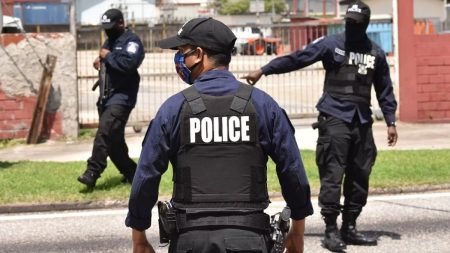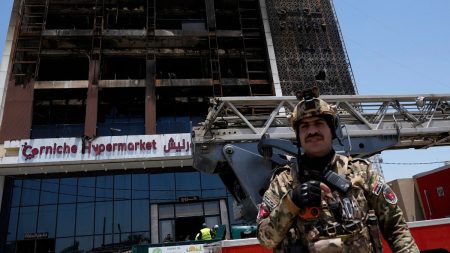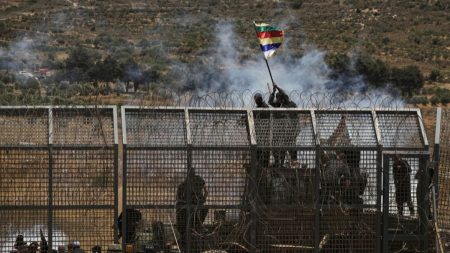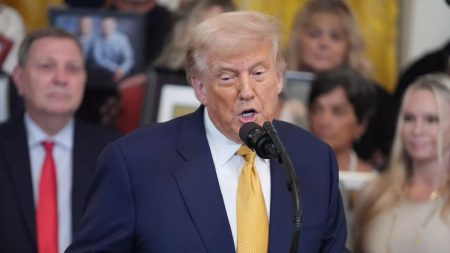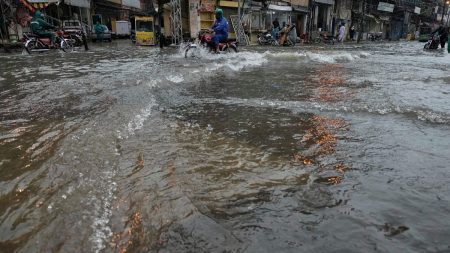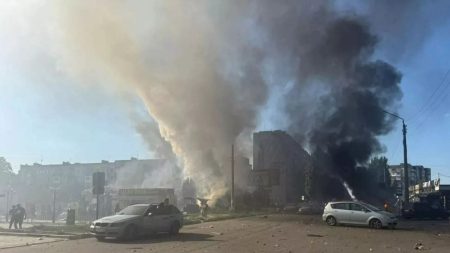On a notable evening, South Korean President Yoon Suk-yeol startled the nation with a televised address announcing the imposition of martial law, a drastic move that instantly reverberated throughout the country’s political landscape. This declaration marked the first instance of martial law in South Korea since 1979, recalling memories of authoritarian rule that many citizens firmly oppose. During that earlier period, military leaders consistently invoked martial law to suppress dissent and maintain control amidst ongoing political turbulence, and the imagery associated with such measures remains ingrained in the collective consciousness of South Koreans. The public’s unease was reflected in a swift and unanimous response from the National Assembly, with lawmakers voting 190-0 to lift the martial law order, prompting Yoon to rescind his decision just six hours later.
In his address, President Yoon attributed the necessity for martial law to alleged destabilizing actions stemming from pro-North Korean and anti-state factions within the country. He failed to substantiate these claims with concrete evidence, instead implicating opposition parties for obstructing his administration’s agenda, including attempts to impeach certain appointees. While the opposition’s actions had indeed posed challenges to Yoon’s policymaking since their ascendance in April, the abrupt invocation of martial law was unexpected and met with significant backlash from both political adversaries and members of Yoon’s own People Power Party. Political leaders, including Han Dong-hoon, voiced their disapproval of Yoon’s decision, framing it as a misstep that he needed to publicly retract.
Political analysts viewed Yoon’s martial law decree as encapsulating a culmination of frustration over internal party divisions and escalating challenges from the opposition. His presidency, characterized by a meager approval rating of just 20%, faced increased scrutiny fueled by scandals, including allegations involving his wife. Cries for impeachment had already begun to echo in public discourse before the martial law announcement, suggesting that Yoon’s precarious political position bred desperation for a bold maneuver. Yet, some experts pointed out the puzzling nature of such a drastic decision, considering that it might have further alienated him from both political allies and everyday citizens, rendering it a seemingly ill-timed gamble.
In terms of foreign policy, Yoon has been steadfast in aligning South Korea closer to the United States, a stance popular among the populace. However, his efforts to mend ties with Japan and enhance military cooperation have been met with resistance due to historical grievances stemming from the colonial era, where perceptions of imperialist oppression remain deeply etched in societal memory. Moreover, Yoon’s approach toward North Korea diverges significantly from that of his predecessor, Moon Jae-in; while Moon sought engagement and dialogue with Kim Jong-un’s regime, Yoon has adopted a decidedly more aggressive posture, signaling a stark departure from previous diplomatic efforts. As for relations with China, Yoon’s administration has attempted to navigate a balanced path, asserting that South Korea need not choose between its larger regional neighbors.
Following the backlash to the martial law announcement, impeachment looms as a likely outcome for Yoon’s presidency, with six opposition parties swiftly submitting a motion for his removal. Given the overwhelming condemnation of his actions, even from within his political sphere, the prospects for Yoon’s retention of power appear grim. Many senior advisors and cabinet members, facing the political fallout, offered resignations in solidarity with various political factions calling for accountability. Parliamentary proceedings are set to initiate a debate over the impeachment motion, underlining a pressing need to address the constitutional and democratic implications of Yoon’s controversial decision swiftly.
This unfolding political saga evokes historical parallels to the past imposition of martial law in South Korea, particularly the events surrounding the assassination of prominent military dictator Park Chung-hee. Ironically, Yoon Suk-yeol’s path to the presidency has been marked by his involvement in prosecuting corruption cases against Park’s daughter, who was previously impeached for abuse of power. Hence, the intertwining of past authoritarian governance with current political dilemmas not only complicates Yoon’s legacy but poses fundamental questions about the trajectory of South Korea’s democracy. As citizens and lawmakers grapple with the implications of martial law and the potential for impeachment, the future of the nation’s leadership remains uncertain, teetering on the brink of a crisis that could redefine its political landscape.






